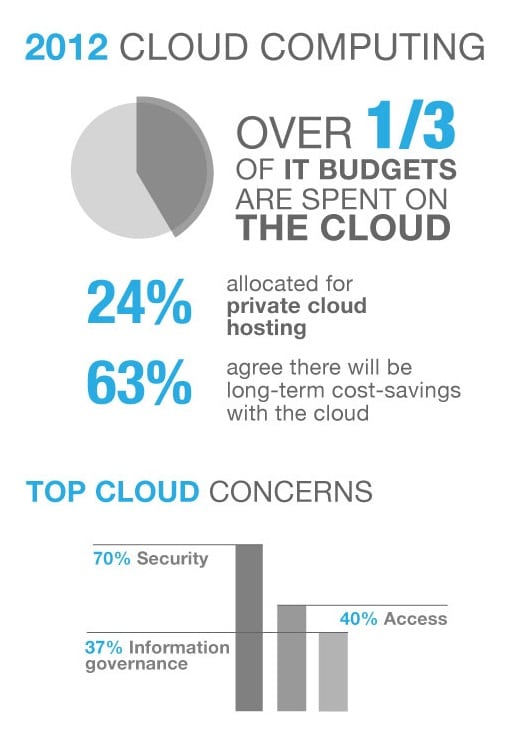10-11-12 | Blog Post
Many of the basic benefits of cloud computing (virtualization) we’ve mentioned in the past can be used by Michigan businesses, regardless of size, as a viable IT business plan. Since we’re all trying to do less with more, upgrading and streamlining where we can in our organizations will only give us more resources and time to focus on adding value to our core business.

Technology has fueled job growth in a new industry for Michigan. AnnArbor.com reports that support from the University of Michigan fostered technology startups in a business incubator launched in 2011, resulting in numerous health IT startups being brought to acquisition in requisite years. Late in 2011, MEDC (Michigan Economic Development Corp.) launched an initiative called ‘economic gardening,’ an approach that focuses on growing second-stage companies instead of attracting outside companies to locate or expand in Michigan.
Small companies may falter at growth without the support of certain in-house resources, such as IT. But choosing to switch to cloud computing from a traditional physical server environment can help Michigan businesses thrive. Here are the major business benefits of leveraging cloud computing:

Lower your computing costs
Pooled computing resources that are provisioned on demand saves on hardware and software costs. With no capital expenditures involved, you can save by switching to the cloud. According to a study by the Abeerdeen Group, a private cloud saves a total of 12% combined annual cost savings over public clouds on a per-application basis.
Faster server deployment
With private cloud computing, you can reallocate resources quickly without the need to find a physical server that will have the resources your new server needs. Cloud computing applications don’t need to be installed on each user’s physical device, and they can be accessed remotely.
Scalable to meet demand
As demand increases, you can add storage as needed. When you’re no longer bound by the physical hardware and servers, you can easily scale up by adding more CPU or memory. Along with faster server deployment, server scalability allows a company to grow or shrink without time or resource-consuming efforts.
Less in-house maintenance
Outsourcing your cloud to a managed hosting provider frees up your staff and resources to be spent elsewhere instead of on server maintenance. If you are a small Michigan business and do not have IT staff, you can easily acquire the expertise and support of a certified and experienced hosting staff.
Reduce your carbon footprint
Although regularly coming in last for business concerns about computing (time-to-market is the primary driver), switching to the cloud can actually reduce the amount of emissions per year by using considerably less energy to power. Resulting in a reduction of average watts per server and reducing network switches and power, switching to the cloud can result in an 87% decrease in carbon dioxide emissions per pound (according to Online Tech’s private cloud with the capacity of 35 servers – read more about this in a post I wrote last July: Green IT: Cloud Computing Saves Time, Costs & Energy).

While security concerns have, in the past, limited the use of cloud computing for critical applications, a private cloud allows you to know where your servers are located, and how they’re being maintained. If you’re outsourcing your IT services, keep your data in-state by choosing a Michigan data center operator, and make sure to tour their data centers. Michigan experiences the lowest number of natural disasters in the country, aside from Alaska; making it the perfect location for a disaster recovery and offsite backup site.

Ask about their audit history to gain insight into their security standards and to determine if they’re qualified to handle sensitive data – healthcare, ecommerce/retail and financial industries should ask about HIPAA, PCI DSS and SOX/SSAE 16/SOC, as there are different laws and regulations that apply to the type of data they store or transmit. A little bit of due diligence before signing a contract can assure you that your data is safe in the cloud.
Related Links:
Top 5 Reasons Why Your Company Should Transition to Private Cloud Computing
NIST Recommendations for Security in the Outsourced Cloud
Healthcare Organizations: Seeking a Cloud Provider? BAAs Required
View all of our Cloud Computing E-Tips.
References:
U-M Technology Transfer Office Honored for Launching Startup Business Incubator
Former U-M Startup Compendia Bioscience Acquired by California Biotech Corporation
MEDC Wants Pure Michigan Business Connect’s ‘Economic Gardening’ to Plant Roots